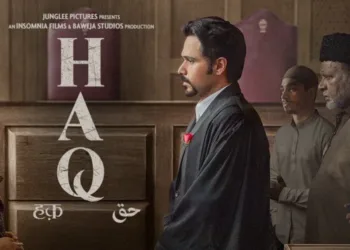Rosalía just dropped a musical masterpiece that’s got critics and fans collectively losing their minds. Pitchfork awarded her fourth studio album LUX an impressive 8.6 out of 10, instantly triggering “album of the year” conversations across social media. This orchestral pop opus, sung in 13 languages and arranged in four movements, represents the Spanish superstar’s most ambitious artistic statement yet—and the internet can’t stop talking about it.
Table of Contents
Rosalía’s LUX Album Quick Facts
| Detail | Information |
|---|---|
| Album Title | LUX |
| Artist | Rosalía |
| Release Date | November 7, 2025 |
| Pitchfork Rating | 8.6/10 |
| Studio Album | Fourth |
| Last Album | Motomami (2022) |
| Languages | 13 Different Languages |
| Structure | Four Movements |
| Genre | Orchestral/Avant-Garde Classical Pop |
Why Pitchfork’s 8.6 Rating Matters
In Pitchfork’s critical landscape, an 8.6 rating signals exceptional artistry. The review praised LUX as “an operatic lament for a new generation, an exquisite oratorio for the messy heart.” This isn’t just good—it’s album of the year territory.

The publication highlighted how LUX “roars through genre, romance, and religion” while delivering “orchestral pop that storms down from the skies.” These aren’t casual compliments. Pitchfork positioned Rosalía’s work as essential listening for anyone who believes pop music can contain profound creative purpose within three or four minutes.
Internet’s Collective Meltdown
Social media erupted immediately following the review. One X user captured the prevailing sentiment perfectly: “8.6?? So basically album of the year but they’re scared to say it out loud.”
Fans celebrated not just the high score but what it represents—validation that Rosalía’s bold artistic risks paid off spectacularly. The three-year wait since Motomami has been worth it for pop music enthusiasts craving innovation over formula.
The Making of LUX: Three Years of Artistic Evolution
Rosalía’s creative process for LUX was anything but conventional. Speaking with Billboard, she revealed approaching this album completely differently from previous projects. The orchestral challenge meant learning instruments, studying legendary composers, and asking herself how to create something personally honest within classical music’s rich history.
The Language Challenge Writing and singing in 13 languages (including Catalan, Spanish, English, Arabic, French, Portuguese, Italian, and German) required extraordinary dedication. Rosalía confirmed spending an entire year writing lyrics, another year arranging music, then returning to retouch her words. As she explained, songs require specific sounds and musical intention beyond written words—especially across diverse linguistic landscapes.
Four Movements, Intentional Structure LUX’s division into four movements wasn’t arbitrary. Each song tells a saint’s story, with Rosalía immersing herself in hagiographies during creation. This thematic coherence elevates LUX beyond typical pop album structures, creating a cohesive narrative arc.
What Makes LUX Revolutionary
The orchestral instrumentation marks radical departure from Rosalía’s previous work. Moving beyond electronic production and reggaeton influences, she embraced classical composition’s complexity. This wasn’t comfortable territory—it was deliberate artistic growth.
Her approach combined classical inspiration with contemporary pop sensibilities, creating what Pitchfork called “a field guide for pop’s seekers.” The album exists for listeners believing music can explore love, desire, and creative purpose with depth and sophistication.

Critical and Commercial Impact
LUX arrives three years after Motomami established Rosalía as a global music icon. This follow-up demonstrates artistic maturity—willingness to abandon proven formulas for uncertain creative exploration. That courage resonates with critics who value innovation.
The 8.6 rating positions LUX among 2025’s top-reviewed albums, generating album-of-the-year momentum that could influence Grammy conversations and year-end lists across music publications.
What’s Next for Rosalía
Beyond music, Rosalía is filming HBO’s Euphoria Season 3, though her role remains undisclosed. She’s also hinted that translating LUX’s orchestral grandeur into live performance will require significant creativity—suggesting fans can anticipate visually spectacular touring experiences.
LUX is currently available on all major streaming platforms, inviting listeners to experience Rosalía’s most ambitious artistic statement.
Frequently Asked Questions
What does Pitchfork’s 8.6 rating for LUX actually mean?
An 8.6 rating from Pitchfork represents “excellent” tier scoring, typically reserved for albums demonstrating exceptional artistry and innovation. Scores above 8.5 often appear in album-of-the-year discussions and indicate the publication considers it essential listening. For context, very few albums receive scores above 8.5 annually.
How is LUX different from Rosalía’s previous albums like Motomami?
LUX marks a dramatic shift toward orchestral and classical composition, abandoning the electronic production and reggaeton influences of Motomami. Written in 13 languages and structured in four movements, LUX embraces avant-garde classical pop with each song telling a saint’s story, representing Rosalía’s most ambitious and experimental work to date.








